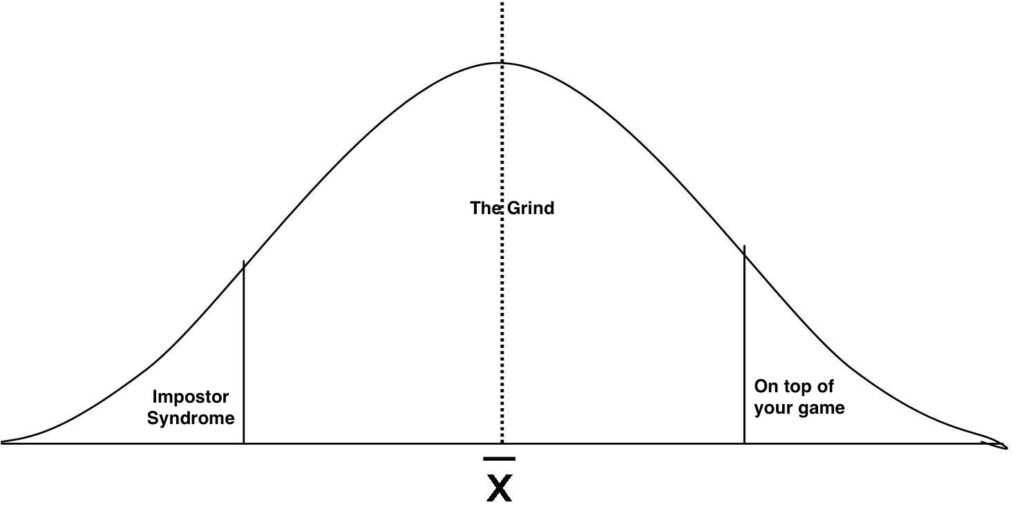How to be and Authentic Doctor #12: Impostor Syndrome
Let’s all check our egos for a minute. Just bear with me and drop your “tough as nails” façade. Admit it. Every one of you, at one time or more in your careers, had impostor syndrome. What’s that you ask? Well, imposter syndrome, also called fraud syndrome, is defined in Wikipedia as:
“a psychological phenomenon in which people are unable to internalize their accomplishments. Despite external evidence of their competence, those with the syndrome remain convinced that they are frauds and do not deserve the success they have achieved. Proof of success is dismissed as luck, timing, or as a result of deceiving others into thinking they are more intelligent and competent than they believe themselves to be.”
Ring a bell? Sound familiar?
There are times in your life that you will think you are on top of your game. It seems that everything clicks and you are right on the money with your diagnosis and treatment plans. Then there are times where you are just grinding through your day just trying to keep your head above water. Your day seems like a Bruce Lee scene from the movie “Game of Death” where you are trying to fight your way from room to room, each opponent tougher than the last. Like a bell curve, the first scenario, on the right, is a rare and on one end of the spectrum. The second scenario or “The Grind” is the widest part of the graph in the middle and the most common.
But then there is the far left end of the curve where you start questioning yourself:
- Am I really good enough?
- Does this patient realize that I have no idea what is going on?
- Man, I don’t even know if I believe what I am saying.
Not you? Well, your time will come. It has happened to me multiple times. I have even fantasized before that a group of people from the government or some other important organization knocks on my office and says, “Ok, the jigs up. It’s over. You’re all done”. And I calmly respond, “What took you so long?”
The truth of the matter is that you do belong in your job and you know what you are doing. You just have to keep reminding yourself of that. No other professional trains so hard and so long as we do. We kill ourselves in college to get into medical school. We study like crazy to do well on the MCATs. We get into medical school (no easy feat) and then work our asses off for four years. We then get into a residency program and get paid nothing for 80 hour work weeks for three, four or more years. Then we have to study for our boards and pass that. After we graduate we enter the real world and the learning curve gets even steeper. Real lives depend on us. We stress but we persevere. We go to conferences. We do 50 hours of continuing medical education every year. We read journals. We look up stuff on every patient who confuses us. In his book Outliers, author Malcolm Gladwell studied the lives of extremely successful people to find out how they achieved success. He concluded that it takes roughly ten thousand hours of practice to achieve mastery in a field. Hell, we may have even beaten that by the time residency is done.
Yet, twenty years out of medical school I still occasionally doubt myself and so will you. My point is that you are not alone. We all, at one time or another, think we are imposters and question whether we know what are doing. My advice to you is to become aware of these thoughts, remember how much it took to get here, smile and let it go. You are competent, intelligent and deserve to be exactly where you are today. You are a good doctor.











#12 certainly applies to me, and I’ll bet to most if not all of you. This bit of insight could only have been recognized and offered by someone who had gone through it all. Way to go Doug, great piece.
TY